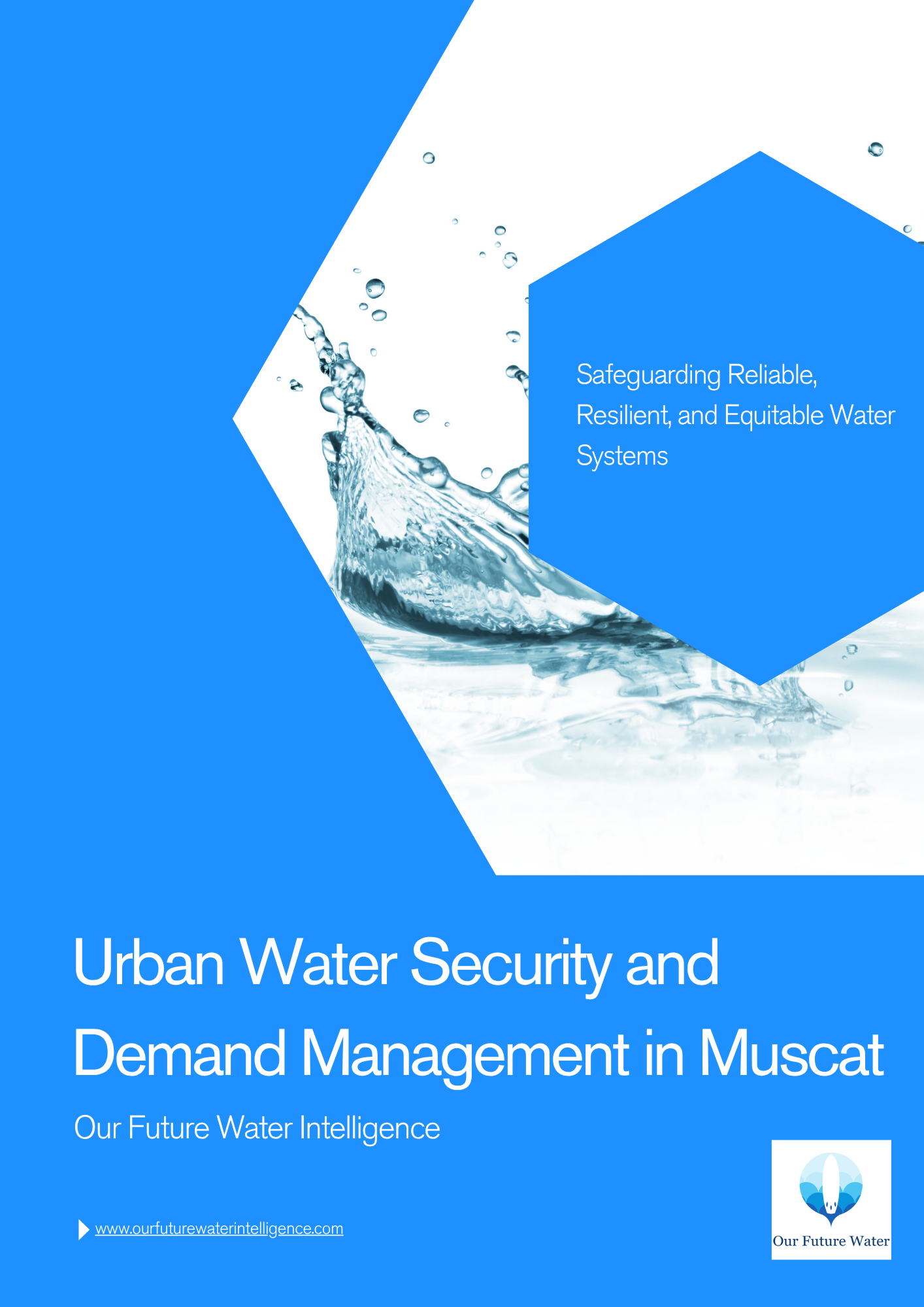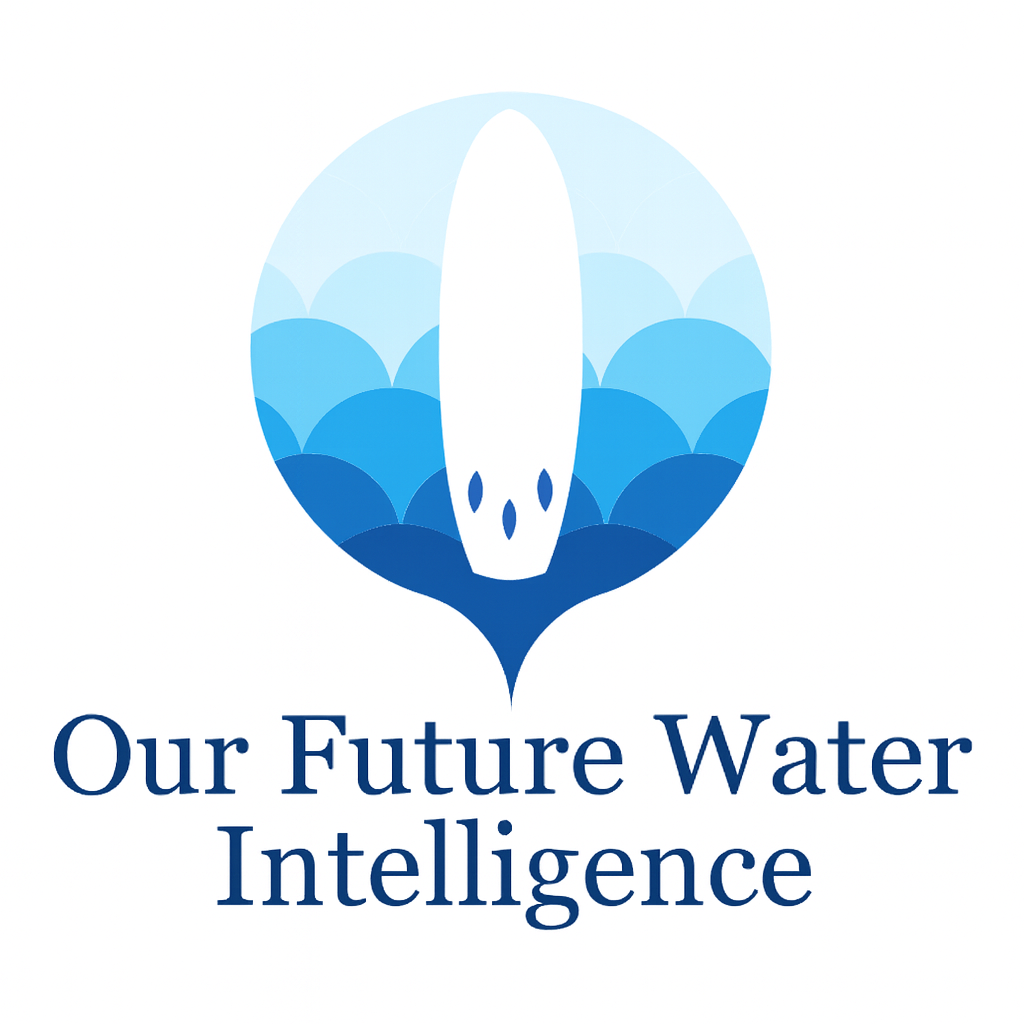
Urban Water Security and Demand Management in Muscat
Urban Water Security and Demand Management in Muscat
Strategic framework for Oman Vision 2040–aligned urban water security, NRW reduction, and low‑carbon desalination in Muscat.
Target Audience
- Utility Executives: Benchmarking smart metering at city scale, NRW programmes using satellite and drone analytics, and integration of desalination, dam water, and treated effluent.
- Regulators: Reviewing tariff reforms that move residential users from legacy subsidies to tiered volumetric tariffs of 0.660–0.770 OMR per cubic metre and non-residential charges of 1.320 OMR per cubic metre, while enforcing a 10 percent NRW target by 2036.
- Infrastructure Investors: Assessing the capital pipeline of over OMR 700 million in network rehabilitation, wastewater projects, and diversification assets such as Ghubrah III IWP (300,000 cubic metres per day) and Wadi Dayqah, supported by a sustainable finance framework for green, social, and blue bonds.
Report Deliverables
- Detailed mapping of Muscat’s supply-demand balance across desalination, groundwater, dams, and treated effluent, including short-term supply gaps of 56,000–59,000 cubic metres per day and projected demand growth to around 732,000 cubic metres per day by 2029.
- Quantified assessment of tariff reforms, NRW dynamics, smart meter deployment, and the carbon-intensity of desalination, which accounts for about 80 percent of Nama Water Services’ approximately 290,000 tonnes of CO₂-equivalent emissions in 2023.
- Forward-looking pathway for achieving the 10 percent NRW target by 2036, scaling treated effluent use beyond Muscat’s 86 percent utilisation in 2022 toward national circularity goals, and decarbonising the energy–water nexus through solar-powered desalination and dam water substitution in line with Net Zero 2050.
The Five Strategic Pillars
Operational Excellence & Resilience
Muscat delivers a high-reliability blueprint for arid capitals, achieving approximately 96.71 percent continuity of supply in 2023 with zero unplanned outages while reducing average new-connection times to 9.7 days, outperforming the 13‑day target, even as desalination remains the dominant and most energy‑intensive supply source. Total national water consumption reached around 492 million cubic metres in 2023, with average daily per capita supply of roughly 205 litres—about 175 litres from desalinated water—while agriculture still accounts for over 80 percent of total withdrawals, underscoring the importance of protecting limited groundwater and prioritising urban uses.
In the short term, Muscat’s zone faces a supply deficit of roughly 56,000–59,000 cubic metres per day between 2023 and 2025, covered through inter‑zonal transfers from Barka of up to 262,000 cubic metres per day until new capacity such as Ghubrah III IWP (300,000 cubic metres per day) comes online around 2027. Over the longer horizon, peak daily demand in the Main Interconnected System is projected to grow from about 1.17 million cubic metres per day in 2022 to 1.39 million cubic metres per day by 2029 and eventually toward 2 million cubic metres per day by 2040, making the 10 percent NRW target, expanded treated effluent utilisation toward 100 million cubic metres by 2030, and diversification via lower‑salinity sources like Wadi Dayqah central to maintaining resilience under rising temperatures and flood risks that already expose around 45 percent of Muscat’s land area to wadi floods.
Programmed across desalination, network rehabilitation, wastewater and treated effluent schemes, and diversification assets, supported by a sustainable finance framework that enables Green, Social, and Blue bond issuance, while electricity use for desalination alone generated around 290,690 tonnes of CO₂‑equivalent emissions in 2023 and cost-recovery from customer tariffs of 0.660–1.320 OMR per cubic metre remains at roughly 20 percent or less.
Expert Briefing: FAQs
How is Muscat’s urban water transition funded?
Muscat’s transition is financed through a mix of state-led capital investment in desalination, dams, networks, and wastewater systems, alongside private-sector participation orchestrated by Nama Power and Water Procurement via competitive independent water project tenders. The Oman Water and Wastewater Services Company has established a Sustainable Finance Framework to issue Green, Social, and Blue bonds to help fund more than OMR 700 million in planned projects, while phased tariff reforms since 2021 gradually reduce subsidies that currently leave tariffs at 0.660–1.320 OMR per cubic metre, still below desalination production costs estimated at roughly 1.20–2.00 OMR per cubic metre.
What defines Muscat’s “urban water security” approach?
Muscat’s approach combines large-scale desalination plants such as Ghubrah II and Qurayyat, forthcoming capacity like Ghubrah III IWP, and the Wadi Dayqah Dam Water Purification Plant with regulated NRW reduction, treated effluent reuse, and stormwater and wadi management to mitigate both scarcity and flood risks. Water is treated as National Wealth under Royal Decree 82/88, and governance is structured so that the Public Services Regulation Authority sets performance and NRW targets, the Ministry of Agriculture, Fisheries, and Water Resources steers integrated resource policy, and Muscat Municipality manages stormwater channels and retention infrastructure that together reduce contamination, enable reuse, and support climate resilience under Oman Vision 2040 and Net Zero 2050.
How does digital intelligence improve performance?
Digital intelligence is embedded through more than 320,000 smart meters in Muscat linked to SCADA systems, enabling hourly consumption data, accurate electronic billing, and automatic alerts that help customers detect internal leaks early and reduce hidden losses. These meters feed into AI‑supported analytics, satellite and drone-based leak detection, and district metered area monitoring that together have improved network efficiency by over 7 percent in two years and supported average annual NRW reduction gains of around 9 percent over four years, while the Nama H2O platform, self‑meter reading tools, and a highly digital customer portal strengthen transparency, engagement, and preparedness for future services such as prepaid smart metering.
Choose options

ARTICLES

Yorkshire Water Nature First urban drainage and wetlands strategy
Yorkshire Water's Water Utility of the Future programme uses a Nature First commitment, wetlands, blue‑green streets, and digital intelligence to cut storm overflows and build climate resilience ac...
Read more
Yorkshire Water Resource Decoupling and Green Energy Transformation
Yorkshire Water is decoupling service from emissions by targeting 40% renewable self-generation, up to 120 MW of solar and expanded biogas-to-biomethane projects, turning key treatment sites into i...
Read more
Yorkshire Water Adaptive Planning and Non-Stationary Climate Resilience
Yorkshire Water is using adaptive planning, the Yorkshire Grid and targeted redundancy projects to manage a non-stationary climate, strengthen drought and power resilience, and protect customers fr...
Read more